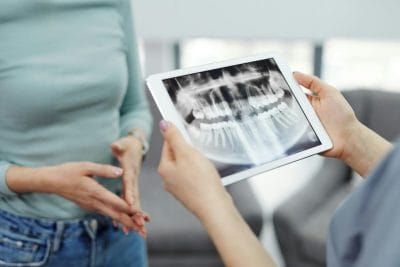Jaw locking, a condition where the jaw temporarily becomes immobile or difficult to open or close, can be a perplexing and discomforting experience. While it may not always be a serious issue, understanding the causes and potential treatments is crucial for those who encounter this condition. In this article, we will delve into the various reasons behind jaw locking and explore whether jaw surgery is a necessary intervention.
Causes of Jaw Locking
Temporomandibular Joint (TMJ) Disorders
One of the primary culprits behind jaw locking is temporomandibular joint disorders, commonly known as TMJ disorders. The TMJ is a hinge joint that connects the jawbone to the skull. Conditions such as arthritis, injury, or inflammation in the TMJ can lead to jaw locking episodes.
Bruxism (Teeth Grinding)
Chronic teeth grinding, or bruxism, can contribute to jaw locking. The excessive force exerted during grinding can wear down the teeth and overwork the jaw muscles, leading to inflammation and potentially causing the jaw to lock.
Muscle Spasms and Tension
Stress and tension can manifest physically, causing the muscles around the jaw to contract involuntarily. This tension can result in a temporary inability to open or close the jaw smoothly.
Dislocation of the Jaw
In some cases, the jaw may become dislocated, preventing normal movement. This can happen due to trauma, extreme jaw movement, or even during activities like yawning. Dislocation may result in jaw locking until the joint is properly realigned.
Dental Issues
Dental problems, such as a misaligned bite or problems with dental work, can contribute to jaw locking. The misalignment can strain the jaw joint and muscles, leading to difficulties in jaw movement.
Degenerative Joint Disorders
Degenerative conditions like osteoarthritis can affect the joints, including the TMJ. Over time, the gradual breakdown of joint cartilage can result in stiffness, pain, and locking of the jaw.
Treatment Options for Jaw Locking
Conservative Measures
In many cases, conservative measures can alleviate jaw locking. These may include lifestyle changes such as stress management, avoiding hard or chewy foods, and practicing relaxation techniques. Physical therapy exercises can also be beneficial in improving jaw mobility.
Medications
For cases involving inflammation and pain, medications such as nonsteroidal anti-inflammatory drugs (NSAIDs) may be prescribed. Muscle relaxants can help reduce muscle tension, offering relief from jaw locking episodes.
Oral Appliances
Dentists may recommend oral appliances, such as splints or mouthguards, to alleviate the effects of bruxism and reduce stress on the TMJ. These devices help in maintaining proper jaw alignment and preventing further damage.
Physical Therapy
Physical therapy tailored to address jaw muscle strength and flexibility can be effective in managing TMJ disorders. Therapists may employ exercises, massage, and other techniques to enhance jaw function.
Surgery
While surgery is generally considered a last resort, it may be recommended in severe cases where conservative treatments prove ineffective. Surgical interventions can range from arthrocentesis (joint flushing) to more invasive procedures like arthroscopy or joint replacement.
Do You Need Jaw Surgery?
Determining the necessity of jaw surgery depends on the underlying cause and the severity of the condition. Surgery is typically reserved for cases where conservative measures have failed, and the individual experiences persistent and severe symptoms.
Before considering surgery, a comprehensive evaluation by a healthcare professional, often a maxillofacial surgeon or an oral and maxillofacial specialist, is crucial. They will assess the specific condition, conduct imaging studies, and recommend appropriate treatment options based on the individual’s unique circumstances.
In conclusion, jaw locking can arise from various factors, including TMJ disorders, bruxism, muscle spasms, dislocation, dental issues, and degenerative joint disorders. The treatment approach varies, with conservative measures and non-invasive interventions often proving effective. Surgery is reserved for severe cases and should be considered only after a thorough evaluation by a healthcare professional. If you are experiencing jaw locking or related symptoms, seeking prompt medical advice is essential for an accurate diagnosis and appropriate management.
